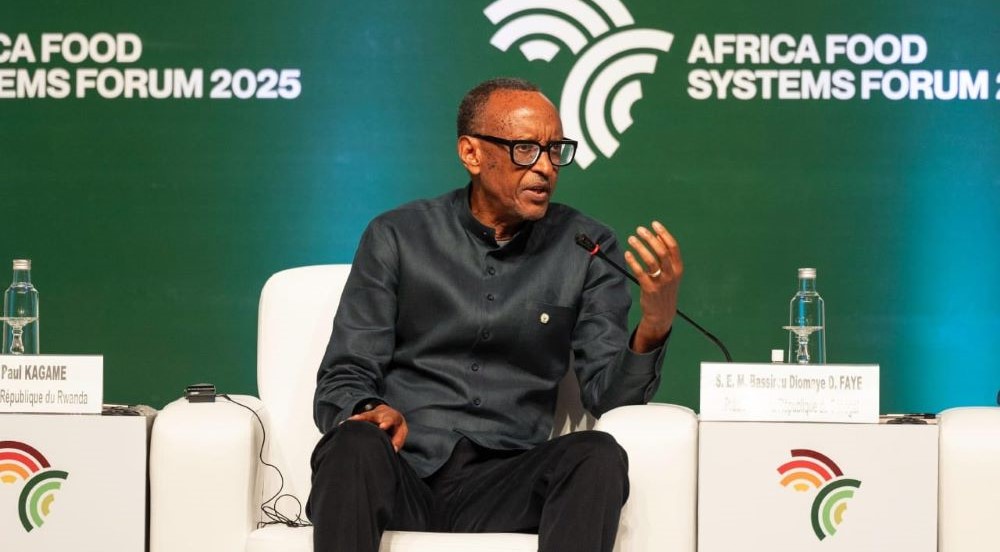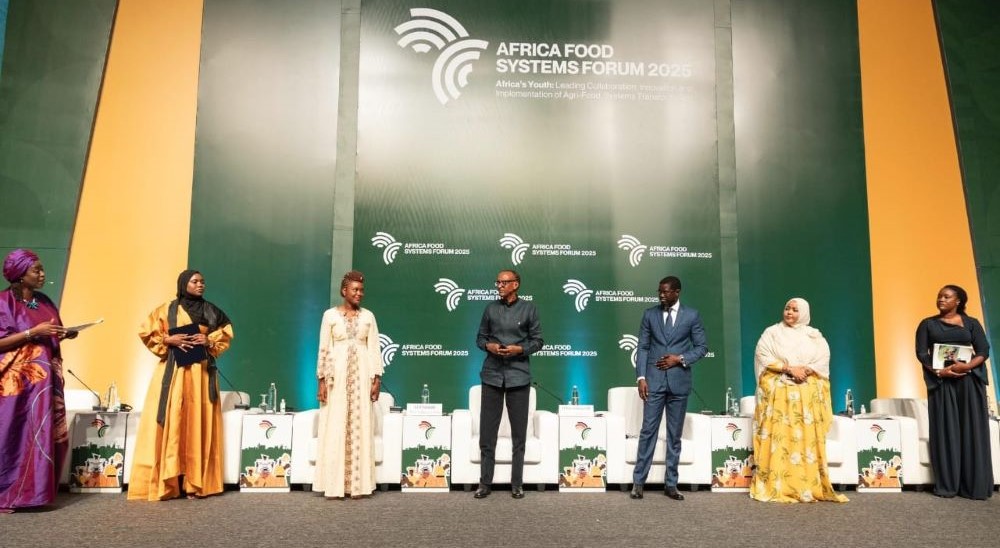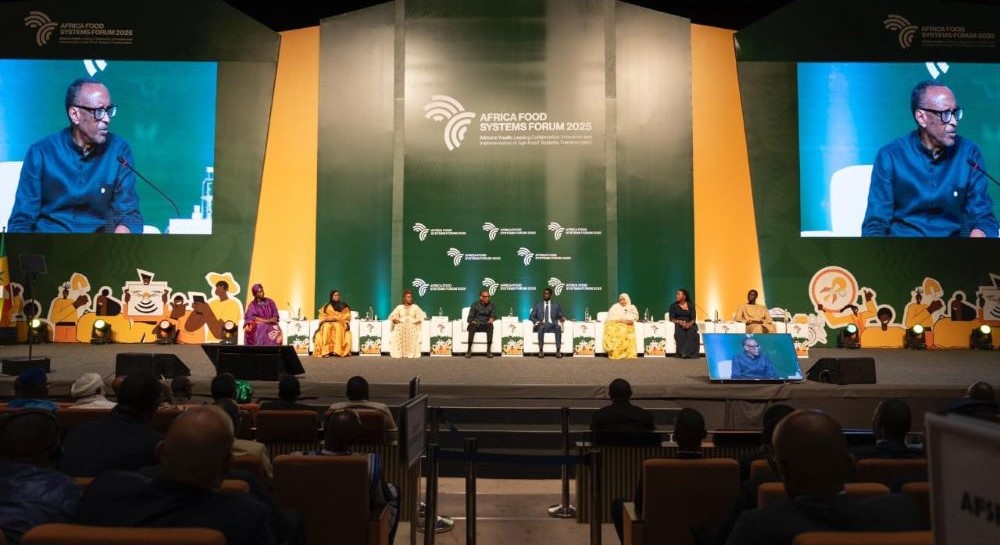President Paul Kagame has urged Africa’s young people to step up and take responsibility in driving the continent’s agricultural transformation, stressing that Africa’s future food security depends on self-reliance, accountability, and innovation.
Speaking at the Africa Food Systems Forum (AFSF) 2025 in Dakar, Senegal, Kagame delivered a message that blended urgency with opportunity, underscoring the pivotal role of youth in shaping Africa’s agricultural revolution.
His call came during a high-level panel discussion alongside Senegalese President Bassirou Diomaye Faye and other leaders, as well as in a Youth Town Hall session that engaged hundreds of young entrepreneurs, innovators, and policymakers.
The Head of State cautioned against Africa’s continued overreliance on external support despite its vast resources, noting that arable land, water, and technology already available on the continent should be sufficient to build resilient food systems if matched with commitment and innovation.
“We have conferences, we have forums, we’re everywhere, saying the right things. But in the end, what can we measure? What results are there to show for the efforts? We must start walking the talk and move from talking to doing,” he said.
The President emphasized that true transformation begins with changing mindsets, increasing production, and reducing the reliance on exporting raw products for external processing.

He pointed to Rwanda’s experience in building strong partnerships with global and regional institutions, citing the creation of Ireme Invest, a $200 million green investment facility that mobilized $100 million at COP27, as a model of climate-smart agriculture financing.
“Ireme Invest is working across the country to help farmers make the changes they want to make with the support of government and external partners. The first round of funds came around COP27, where $100 million was mobilized for this fund,” Kagame explained.
Beyond financing, Kagame underlined the importance of empowering young people through education and innovation.
He highlighted initiatives such as the Rwanda Institute of Conservation Agriculture (RICA), established with support from the Howard G. Buffett Foundation, which trains young Africans to become entrepreneurs and agricultural leaders.
He also praised partnerships like the IFC-supported Rwanda Climate Smart Agriculture Initiative, which has reached more than 170,000 farmers.
However, Kagame insisted that the responsibility cannot rest solely on governments and development partners. He challenged the youth to take ownership of Africa’s future rather than waiting for external saviors.
“Young people, my simple message to you is: let’s not run away from problems. Because even where you run to, you will find problems, maybe even more problems. Especially when they will send you back where you came from,” he warned.

Instead, he urged them to confront challenges head-on with courage and purpose. “Find a purpose, know there are going to be problems, try and fail but don’t fail to try,” he said, calling on Africa’s youth to be proactive, innovative, and accountable in the continent’s development journey.
Kagame also emphasized inclusivity, pointing to Rwanda’s demographic reality, where women make up more than half of the population and 75 percent of citizens are under the age of 35.
He argued that Africa’s progress depends on ensuring that women and youth are central to agricultural transformation efforts, not peripheral beneficiaries.
This year’s Africa Food Systems Forum, running from August 31 to September 5 in Dakar, has drawn more than 5,000 delegates, including heads of state, business leaders, farmers, and innovators.
Discussions are focusing on youth-led agribusiness, digital innovation, climate resilience, and the inclusion of marginalized groups.
As the continent continues to battle food insecurity amid climate change and financial constraints, it is clear that Africa’s youth are not just participants in the conversation, they are the drivers of the solution.
With innovation, partnerships, and accountability, Africa can achieve food security and agricultural transformation that is both sustainable and inclusive.

